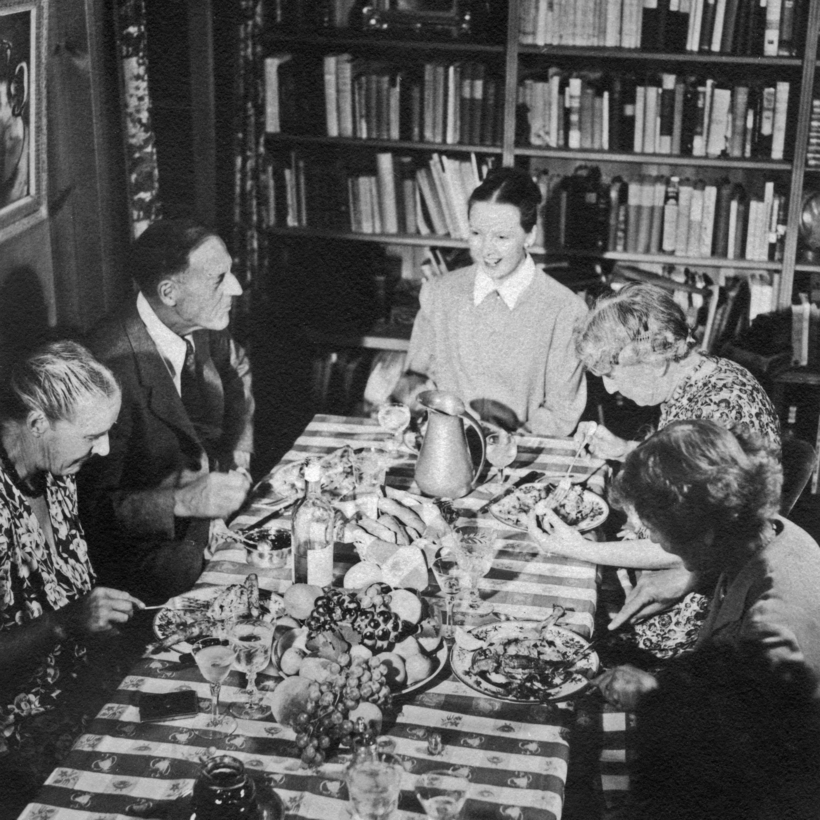W. H. Auden famously said of M. F. K. Fisher, “I do not know of anyone in the States who writes better prose.” Born in Michigan in 1908 and raised in Southern California, Fisher, who died in 1992, was more than a food writer; she pioneered the way we write and think about food. Perhaps her most beloved collection is The Gastronomical Me, published in 1943, in which she wrote, “Our three basic needs, for food and security and love, are so mixed and mingled and entwined that we cannot straightly think of one without the others.” Since we are deep into summer, what could be more ideal than reading Fisher’s essay about a family trip she took down the California coast as a girl of 10, when they shared a peach pie and cream that all of them would remember, forever. —Alex Belth
Now you can drive from Los Angeles to my Great-Aunt Maggie’s ranch on the other side of the mountain in a couple of hours or so, but the first time I went it took most of a day.

